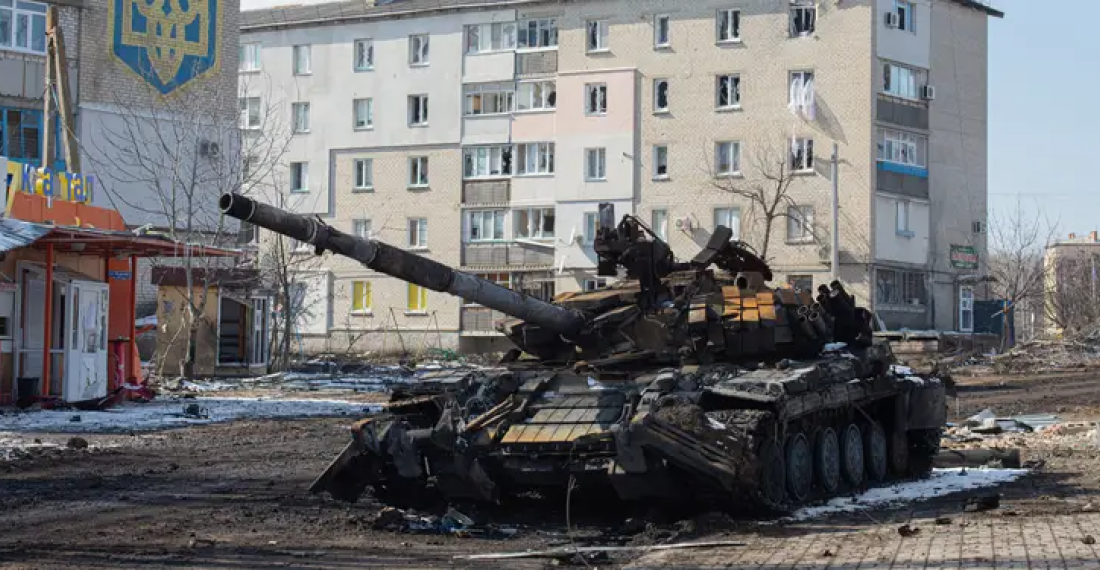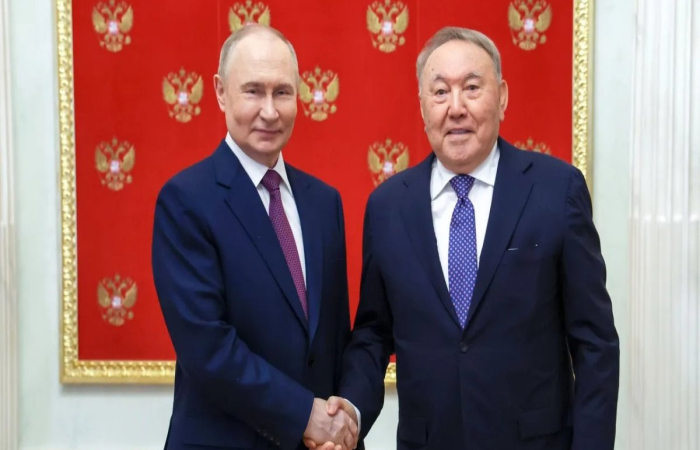Ukrainian forces are likely conducting a "limited tactical withdrawal" from Bakhmut, said the Institute for the Study of War in its latest update of the Russia-Ukraine war on Monday (6 March).
They did also caution, however, that it is too early to tell if Ukraine is considering a complete withdrawal from the city.
Bakhmut, an industrial town in Ukraine's east with a pre-war population of approximately 70,000, has been the object of a Russian offensive for some seven months. Despite having reportedly lost thousands of soldiers in an attempt to take the town, which has little strategic value, Russia continues to attempt to encircle the town to claim a much-needed victory after large retreats from Kyiv, Kharkiv and Kherson last year.
According to the ISW, recent geolocated footage of a destroyed railway bridge in northeastern Bakhmut on 3 March may indicate that Ukrainian forces are withdrawing from their positions on the eastern bank of the Bakhmuta River, Meanwhile, other footage shows that the Kremlin-backed private mercenary Wagner Group has continued to make advances in northeastern Bakhmut.
Bakhmut almost entirely destroyed, a Russian victory would be pyrrhic
Quoting a Ukrainian serviceman, the ISW also reported that, as of 4 March, Russian forces had not yet crossed the Bakhmuta River into central Bakhmut. Russian military bloggers have also claimed the Wagner Group had pushed Ukrainian positions back to central Bakhmut, according to the ISW.
It is unclear if Ukraine is planning to hold its positions on the western bank of the Bakhmuta River, with the ISW adding that "Ukrainian forces are unlikely to withdraw from Bakhmut all at once and may pursue a gradual fighting withdrawal to exhaust Russian forces through continued urban warfare."
Having been under attack for months, Bakhmut is almost entirely destroyed. Some analysts have suggested that if Russia were to eventually take the town, any victory would be "pyrrhic", meaning won at too great a cost to have been worthwhile.
Russia begins deploying 60-year-old tanks
Amid the increased fighting along the frontline in eastern Ukraine, the UK Ministry of Defence reported in its intelligence update on 6 March that Russia "has continued to respond to heavy armoured vehicle losses by deploying 60-year-old T-62 main battle tanks".
The Ministry also wrote that, "in recent days, Russian BTR-50 armoured personnel carriers, first fielded in 1954, have also been identified deployed in Ukraine for the first time", and that since last summer, "approximately 800 T-62s have been taken from storage and some have received upgraded sighting systems which will highly likely improve their effectiveness at night".
They add however that both of these "vintage" vehicle types will be very vulnerable on the modern battlefield because of the absence of modern explosive reactive armour.
source: commonspace.eu with agencies
photo: Business Insider/Stringer/Anadolu Agency via Getty Images






